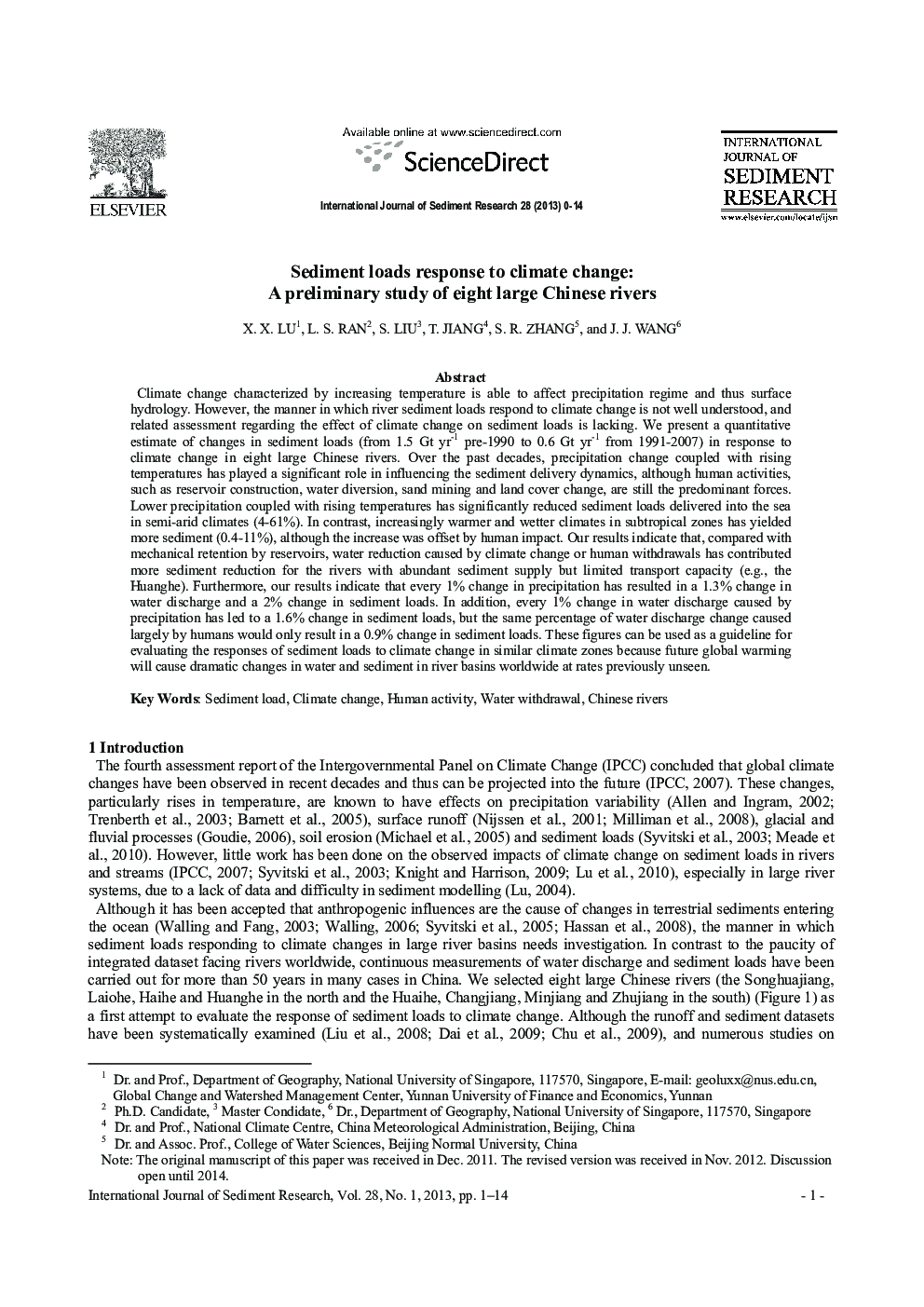| Article ID | Journal | Published Year | Pages | File Type |
|---|---|---|---|---|
| 4712537 | International Journal of Sediment Research | 2013 | 14 Pages |
Climate change characterized by increasing temperature is able to affect precipitation regime and thus surface hydrology. However, the manner in which river sediment loads respond to climate change is not well understood, and related assessment regarding the effect of climate change on sediment loads is lacking. We present a quantitative estimate of changes in sediment loads (from 1.5 Gt yr−1 pre-1990 to 0.6 Gt yr−1 from 1991–2007) in response to climate change in eight large Chinese rivers. Over the past decades, precipitation change coupled with rising temperatures has played a significant role in influencing the sediment delivery dynamics, although human activities, such as reservoir construction, water diversion, sand mining and land cover change, are still the predominant forces. Lower precipitation coupled with rising temperatures has significantly reduced sediment loads delivered into the sea in semi-arid climates (4–61%). In contrast, increasingly warmer and wetter climates in subtropical zones has yielded more sediment (0.4–11%), although the increase was offset by human impact. Our results indicate that, compared with mechanical retention by reservoirs, water reduction caused by climate change or human withdrawals has contributed more sediment reduction for the rivers with abundant sediment supply but limited transport capacity (e.g., the Huanghe). Furthermore, our results indicate that every 1% change in precipitation has resulted in a 1.3% change in water discharge and a 2% change in sediment loads. In addition, every 1% change in water discharge caused by precipitation has led to a 1.6% change in sediment loads, but the same percentage of water discharge change caused largely by humans would only result in a 0.9% change in sediment loads. These figures can be used as a guideline for evaluating the responses of sediment loads to climate change in similar climate zones because future global warming will cause dramatic changes in water and sediment in river basins worldwide at rates previously unseen.
